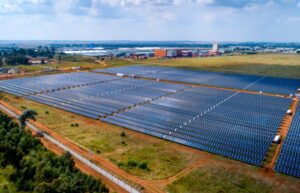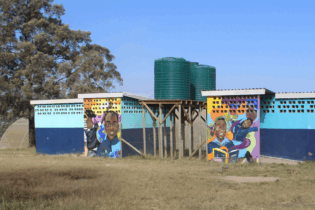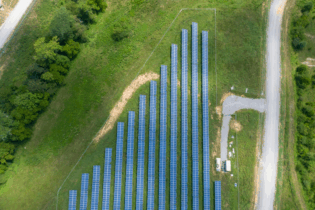Heineken South Africa has taken a bold step toward reducing carbon emissions in all its operations and reaching its 2030 net-zero goals.
Heineken South Africa has taken a bold step in moving closer to reducing carbon emissions in all its operations, by launching a solar power plant at its Sedibeng, Midvaal brewery. The solar power plant was built as part of the company’s Brew a Better World initiative and will contribute to the group’s efforts to achieve net-zero emissions by 2030. Heineken is a key player in the beer and cider industry in the country, with an impressive portfolio of brands, including the global flagship brand Heineken, Windhoek, Amstel, Strongbow, Sol and Soweto Gold. Not only does the brewer strive to be an employer of choice, firmly rooted in South Africa, but its ambitious net-zero goals set it apart within the beer industry. In September 2021, Heineken shared its road map to becoming net-zero. Its goals include driving a renewable energy step change and focusing on low-carbon agriculture, green packaging, logistics and cooling innovations.Sustainable partnerships
The 6.5 MW solar photovoltaic (PV) plant – which is the latest move made by the company in its journey to energy efficiency – was built in partnership with renewable energy solutions specialist SOLA Group. The project, which stretches over 19 ha, involved the installation of 14 000 PV panels, which will generate 17 000 MWh/annum and supply 30% of the brewery’s power consumption. “The newly installed solar plant follows a water reclamation plant unveiled at the same facility earlier this year,” said Richard Kriel, manager: Engineering, Strategic Projects and Sustainability at Heineken, speaking at the launch event in October. Heineken and SOLA Group have entered a 15-year power purchase agreement, which states that the SOLA Group owns and will maintain the power plant during the 15-year period; however, the plant itself has an expected lifespan of 25 years. “SOLA is proud to be associated with Heineken and [its] commitment to procuring clean, low-carbon energy. Embedded generation projects right at the source of consumption help in reducing the load on the electricity supply network without additional grid infrastructure upgrades,” says Dom Wills, CEO at SOLA Group. The SOLA Group is a vertically integrated provider of renewable energy solutions, aiming to transform Africa through clean energy. The group consists of two unique and complementary businesses. With over 13 years of experience, SOLA’s expertise lies in the origination, development, financing, engineering design, project management, and operations and maintenance of renewable energy facilities.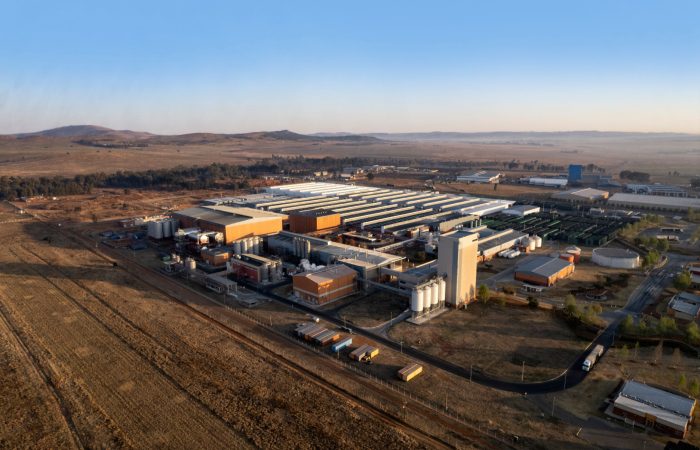
Powering the future
The plant was built in about seven months and began supplying power to the brewery in May 2022, following its completion. The solar plant is the largest freestanding solar plant powering a brewery in South Africa, and the largest within the Heineken group.The embedded, grid-connected solar project integrated single-axis tracking technology, which allows the panels to face the sun throughout the day, providing the highest amount of energy possible.
The plant’s weather station detects storms and allows the trackers to move the panels into a defensive stow position to avoid hail and wind. Wills explains that even with expected technological developments in PV technology, the plant used the latest technology currently available. “We don’t see this becoming obsolete at any point in the next 15 years, and if there are new developments and small things that we can change and add as we go, then we will incorporate that in the plan.” The solar plant is Wi-Fi enabled and controlled. It is connected through a Scada system, allowing for real-time monitoring and control. This mean that if any faults or problems are identified through the system, it can be resolved remotely. For any issue that cannot be addressed remotely, a specialised team will visit the site to resolve it. Owing to the plant being an embedded, grid-connected generation project, electricity supply automatically turns off when the grid goes down. Wills adds that the SOLA Group is working on a solution at the Sedibeng brewery to ensure the solar plant can be used to offset the impact of power generated by diesel generators during periods when the gridis down. “To take the solar plant completely off-grid would require the plant to meet 100% of the brewery’s power consumption needs, as well as storage solutions, among other considerations and additions.” Kriel said the plant was the start of the brewery’s journey to using sustainable power sources and that the company was looking at other renewable energy options to supply the remaining 70% of power the brewery requires.
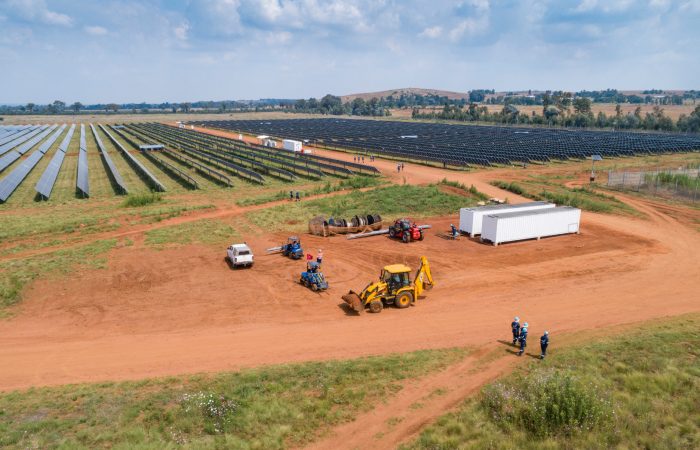
Local beneficiation
During the building stage, a total of 127 job opportunities were generated, of which 100 were filled by people from the local Sedibeng community. The various job opportunities include technicians, construction teams, general workers and community members who attend to solar panel cleaning and vegetation control to maintain optimal performance. Peter Teixeira, executive mayor, Midvaal Local Municipality, said he is delighted to report that he has seen the difference this project has made with regard to unemployment within the area. Teixeira also lauded the company for always including the municipality and driving sustainable partnership and collaboration with government. At the launch event, HEINEKEN also made a significant contribution toward solar panels and equipment for the municipality. “I can confirm that Heineken really does look after the local community, and when I say local, I speak for the entire Sedibeng region. Heineken plays a significant role in Midvaal and this innovative step they’ve taken to secure energy will ensure that people’s jobs are safe, and they continue to grow opportunities in Midvaal.”

